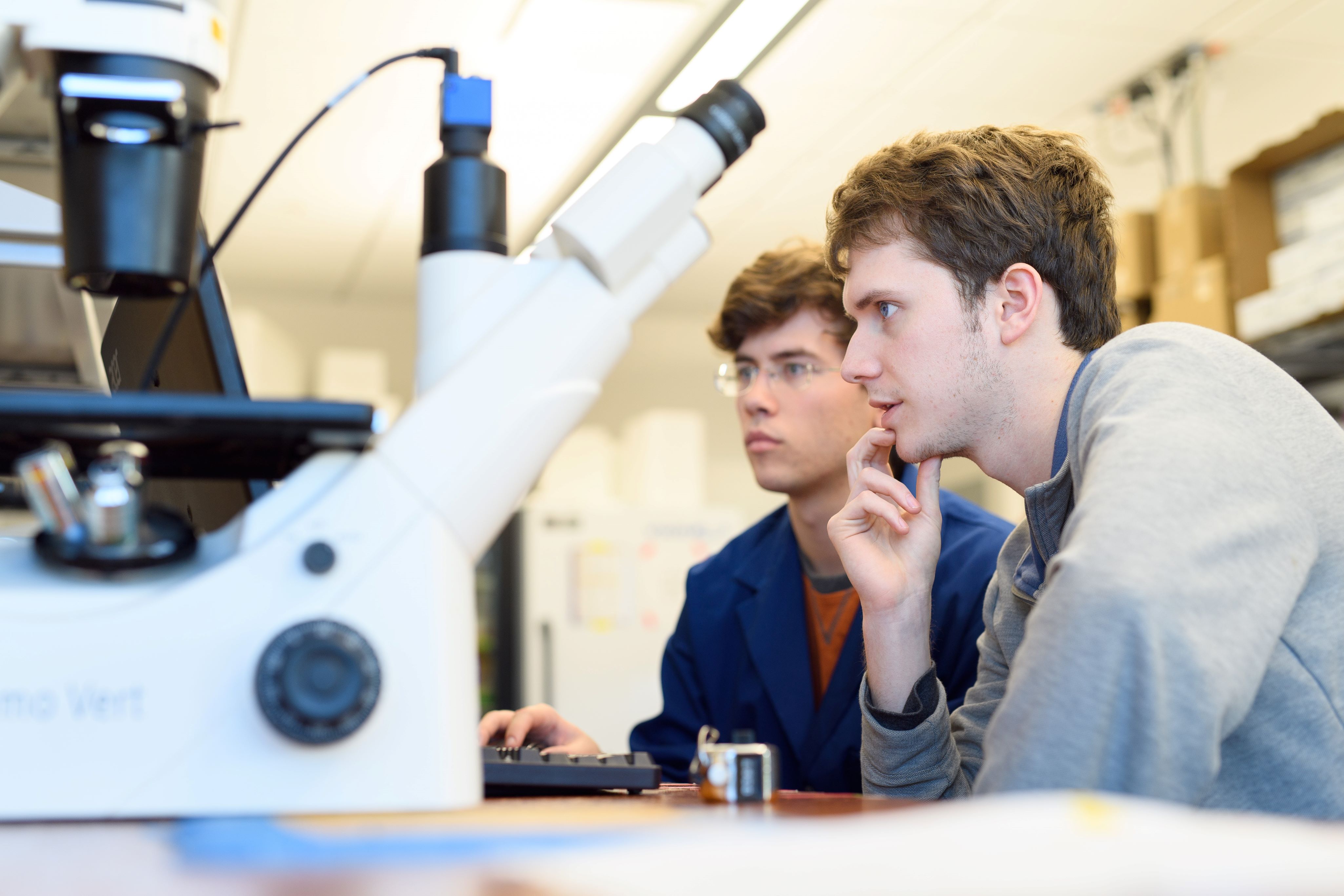Areas of Specialization
Our faculty lead cutting-edge research and innovation, combining real-world expertise with state-of-the-art labs and equipment. Our students are equipped to tackle complex challenges, driving advancements that transform industries, enhance society, and improve quality of life.
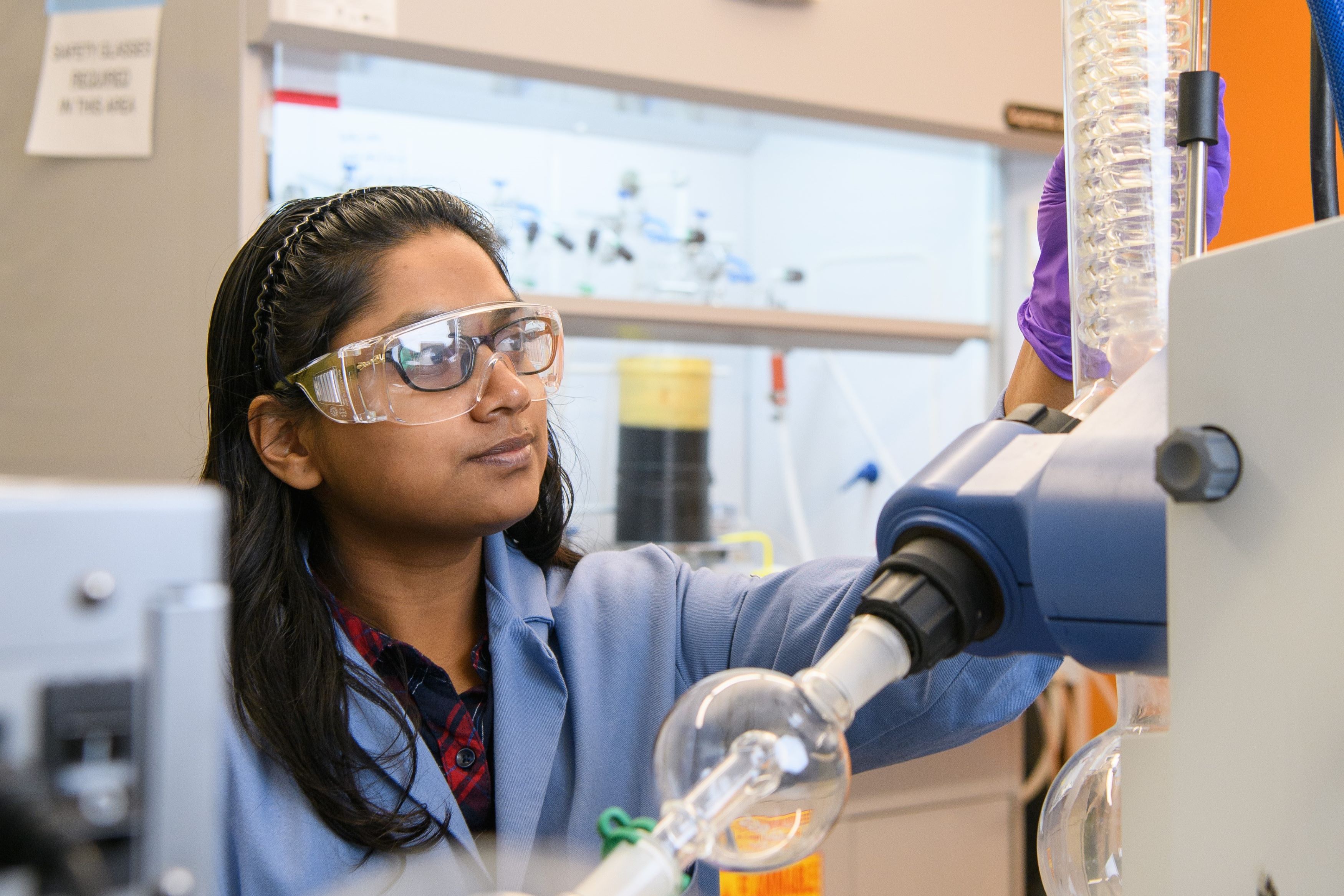
Energy
Energy is a global challenge impacting all aspects of modern life. Our research drives innovative, sustainable, and renewable energy solutions, from advanced fuel production to energy storage and carbon capture.
Faculty and students focus on diverse topics like hydrogen production, fuel cells, electrochemical energy conversion, and CO2 reduction, alongside developing advanced materials, renewable fuels, and cleaner combustion. We also assess environmental impacts, integrating policy and life-cycle analysis for sustainability.
Through interdisciplinary collaboration, we advance clean energy technologies to shape a sustainable future. Our internationally recognized faculty provide mentorship and lead groundbreaking research with lasting global impact.

Environmental
Environmental engineering research focuses on protecting ecosystems while supporting sustainable development. Our work tackles pollution, waste management, and resource conservation to meet global needs.
Research includes air and water quality, waste treatment, and environmental remediation. Projects develop advanced purification systems, pollution controls, and eco-friendly materials while assessing industrial impacts.
Our faculty is committed to fostering research that balances industrial growth and environmental issues with sustainability, aiming to protect ecosystems, improve public health, and ensure a greener future.
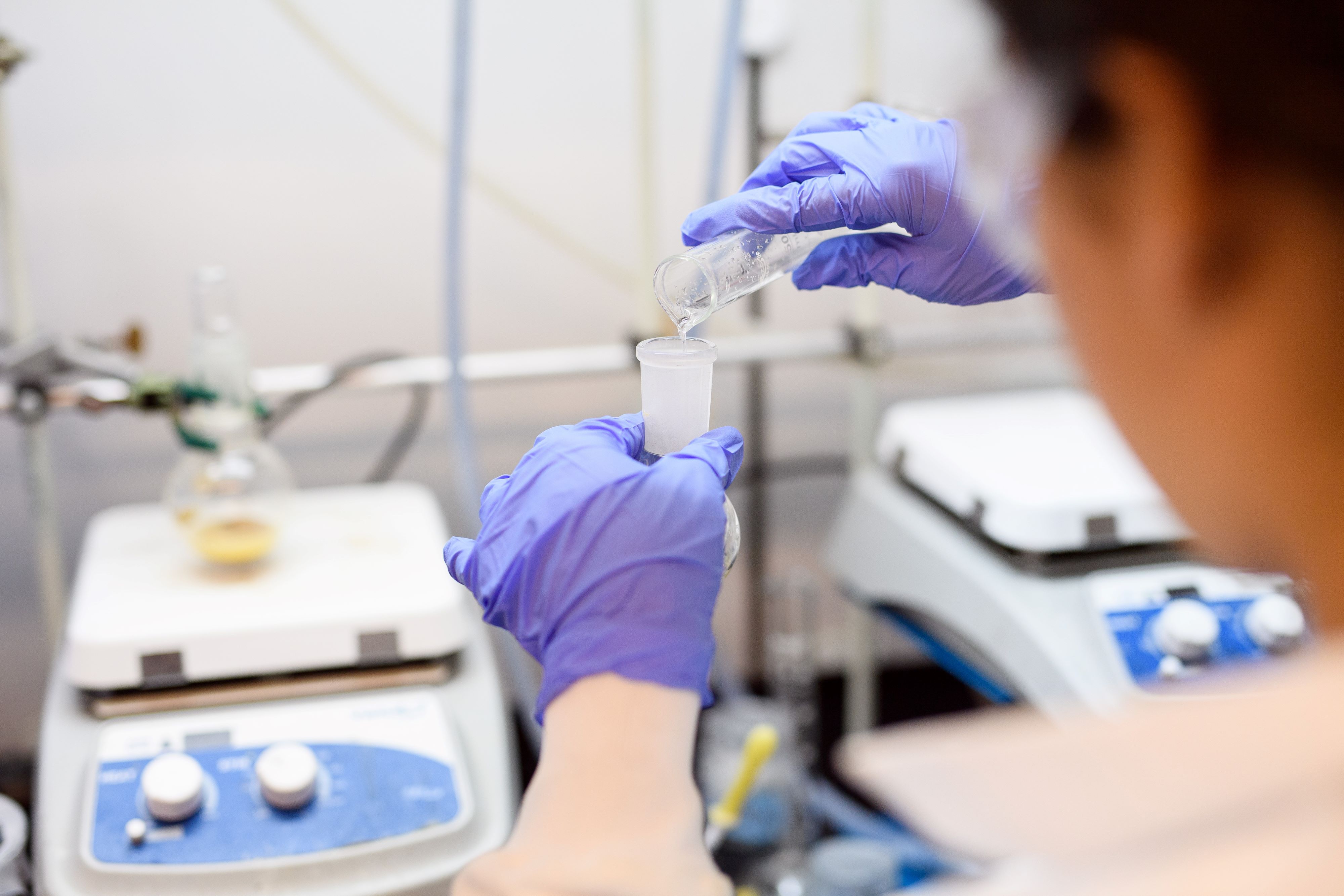
Biochemical
Biochemical research explores innovative solutions at the intersection of biology and engineering to advance health, sustainability, and industrial processes. Our research focuses on developing bio-based technologies to address global challenges in medicine, energy, and the environment.
Research includes bioprocessing, metabolic engineering, and biomaterials development. Projects range from biofuel production and pharmaceutical synthesis to wastewater treatment and biodegradable plastics, leveraging biological systems for sustainable solutions.
Our faculty is dedicated to pioneering research that integrates biotechnology with chemical engineering, driving advancements that enhance human health, promote environmental sustainability, and support the bioeconomy.
Advanced Computations
Advanced Computations leverages computational methods and numerical techniques to explore fundamental principles and solve complex problems in chemical engineering. These methods provide deeper insights into heat and mass transfer, fluid mechanics, chemical reaction engineering, and molecular simulations, complementing experimental studies.
Our research spans a wide range of topics, using advanced scientific computing to investigate chemical, physical, and biological systems. Current projects include studying nanoparticle formation and environmental impact, catalyst surface reactions, cellular signaling, polymer rheology, low-temperature plasmas, and the nano-scale self-assembly of particles with diverse geometries. These computational tools are essential for advancing both theoretical understanding and practical applications.
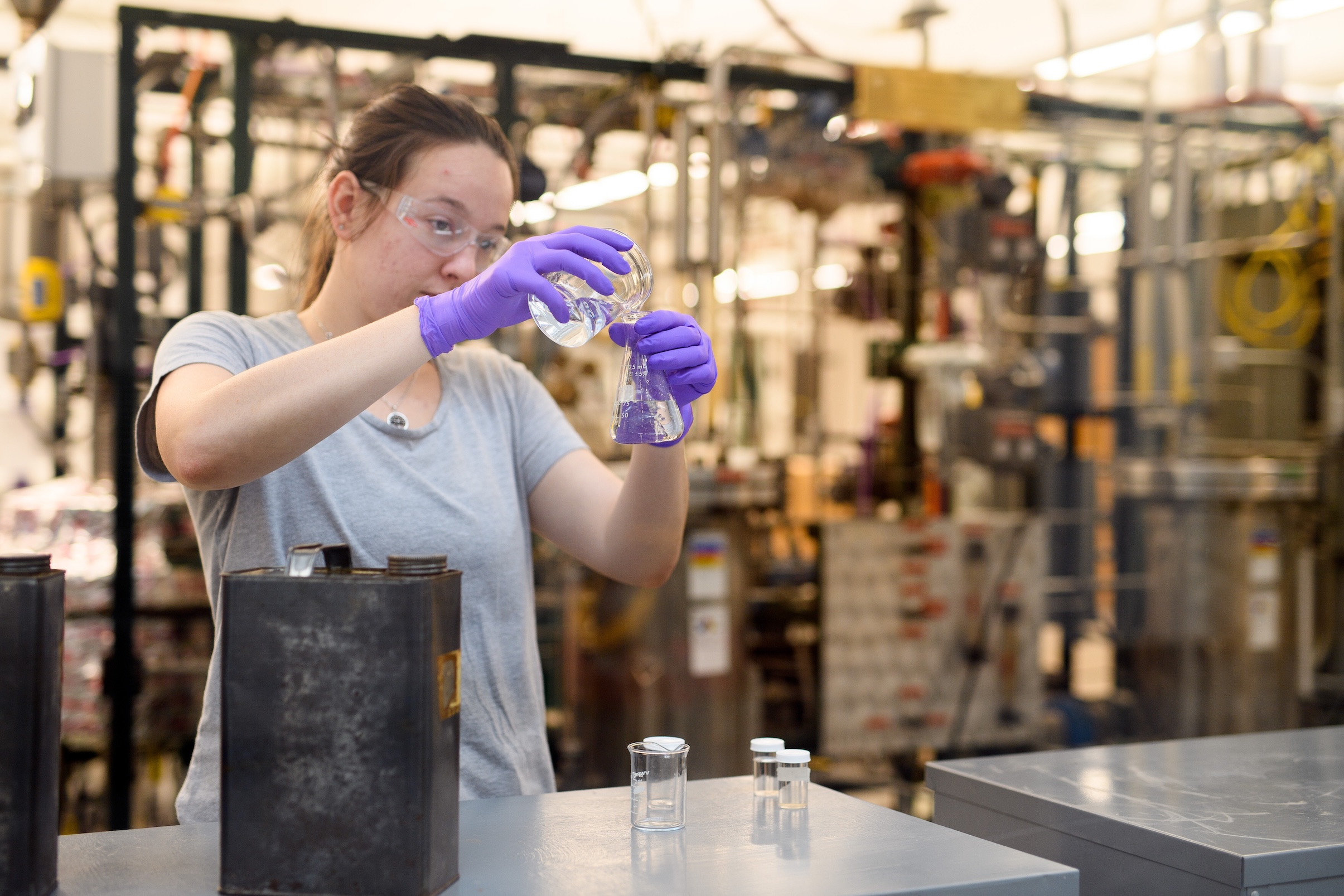
Process Systems Engineering
Process Systems Engineering focuses on the modeling, simulation, optimization, and control of complex chemical processes. Our work enhances efficiency, safety, and sustainability across industries, from energy production to advanced manufacturing.
Research includes real-time process optimization, smart manufacturing, and industrial automation. Projects involve integrating renewable energy sources, improving oil and gas recovery, optimizing semiconductor manufacturing, enhancing energy management in industrial plants, and developing advanced process control strategies using AI and wireless sensor networks.
Our faculty are leaders in process systems engineering, contributing to cutting-edge advancements that drive innovation in industry.
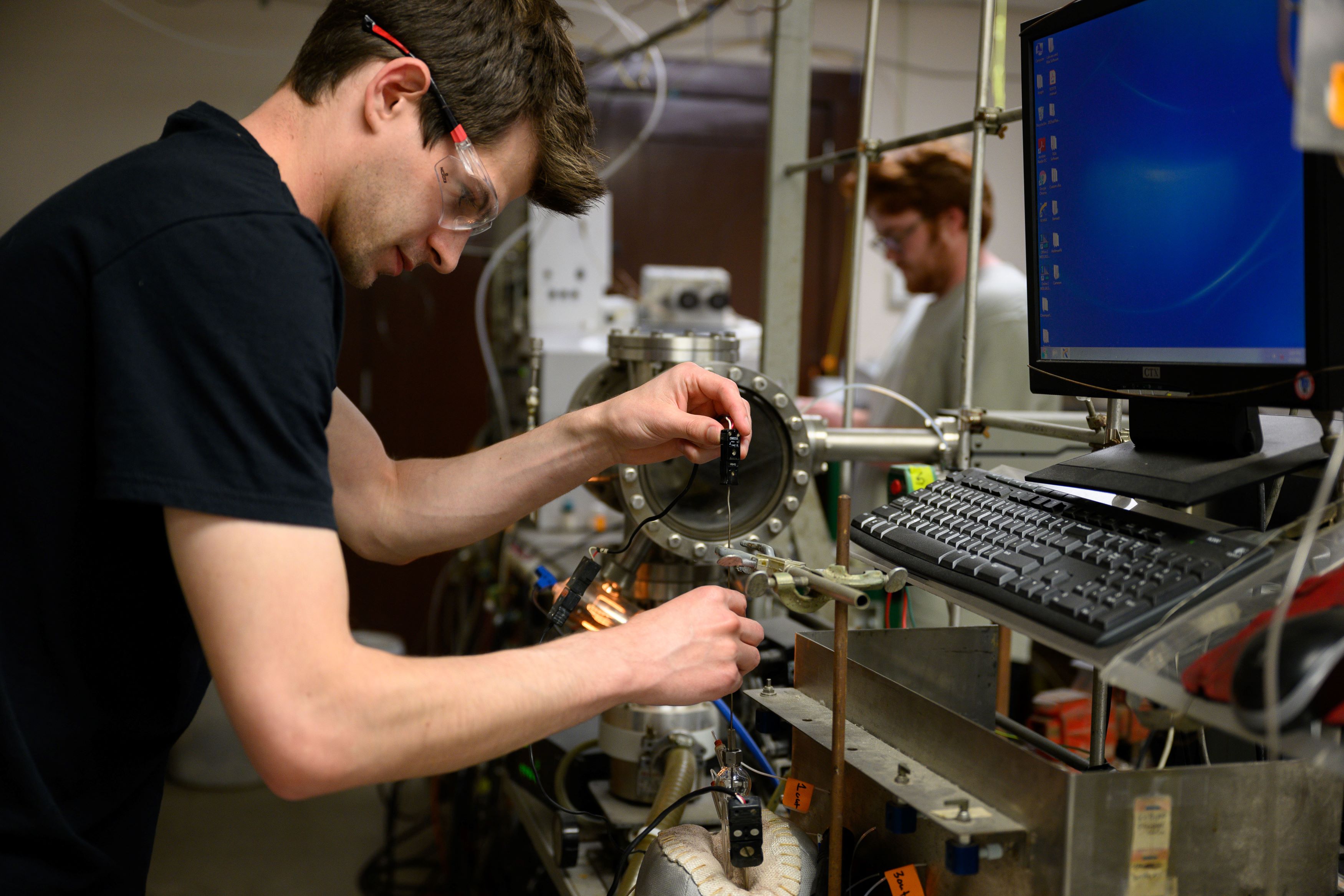
Catalysis
Catalysis plays a vital role in tackling global energy and sustainability challenges, and our program is at the forefront of this research. We develop advanced catalytic materials to enhance reaction efficiency, support sustainable fuel production, cut emissions, and transform renewable feedstocks into valuable chemicals.
Our research focuses on catalysts for hydrogen production, CO2 conversion, and process optimization in industries like petrochemicals and pharmaceuticals. With state-of-the-art labs and a multidisciplinary approach, we advance catalysis, reaction engineering, and nanotechnology to drive next-generation clean and efficient technologies.
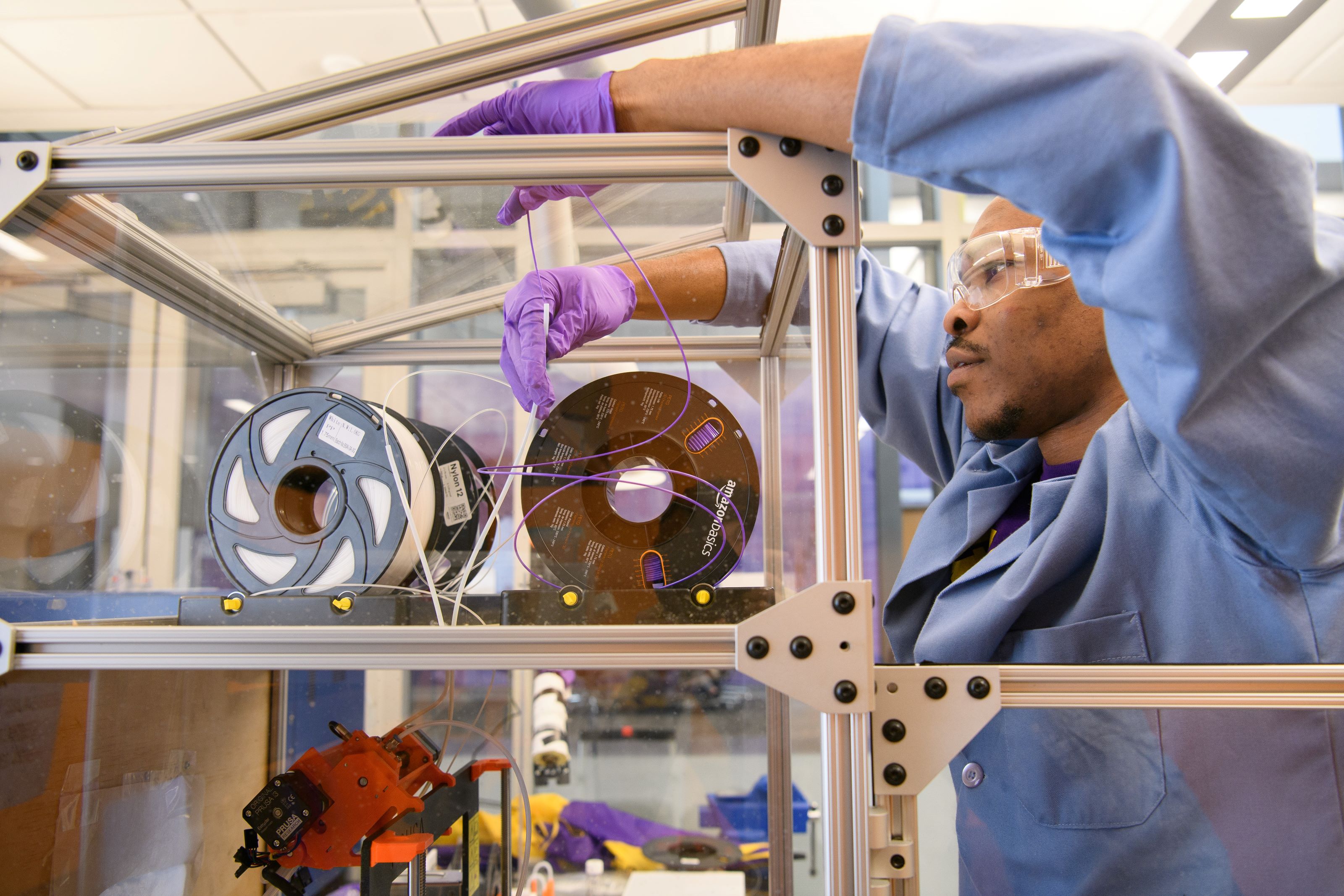
Materials
Materials research drives innovation in sustainability, clean energy, and environmental impact. Our work covers the design, synthesis, and application of advanced materials to enhance real-world performance.
Faculty and students collaborate on catalysis, nanomaterials, and polymers, tackling challenges like corrosion resistance, carbon capture, and energy storage. We also explore materials' structural and functional properties to improve stability, durability, and efficiency in industrial processes.
With expertise in materials science, our program advances renewable energy, sustainable chemicals, and environmental remediation, promoting both economic growth and environmental sustainability.
